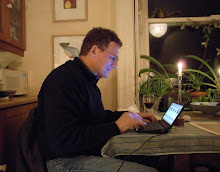
While driving a busy thoroughfare last week, I saw an oncoming delivery truck straddle both lanes and stop, purposely blocking all traffic behind it. The driver jumped out and herded a mother mallard, with her half dozen or so ducklings, across the street to safety. Horns beeped in tribute to the deliveryman's husbandry.
This is the hatchling season. We are reminded of that by pictures of threatened rookeries on gulf islands. Brown Pelicans are Louisiana's state birds. DDT almost made them extinct, but they have recovered and were taken off the endangered species list just last November. Now they are imperiled again as oil mires their plumage and washes onto their eggs.
Each hatchling is fed about 150 pounds of fish, shellfish, and amphibians, before it can fend for itself. When birds dive, their eyes are protected only by a nictiating membrane so that they may see their prey. Many have gone blind after diving into polluted or infected waters.
Pelicans can live in the wild up to 30 years. Whether their environment has been ruined, and whether that ruin is permanent, might remain an open question for decades.
Brown Pelican, watercolor by John James Audubon. Click on the picture for a closer look.





